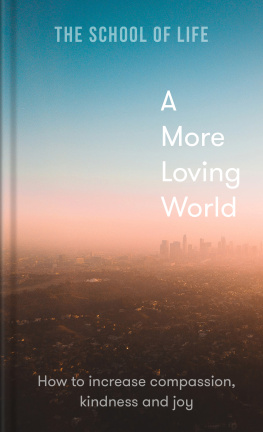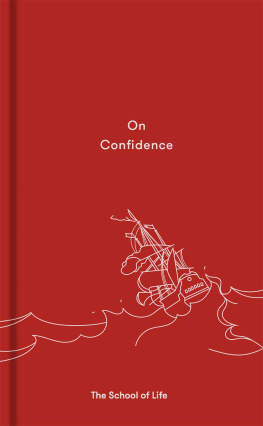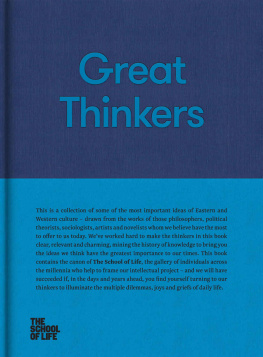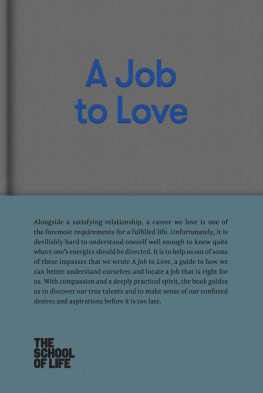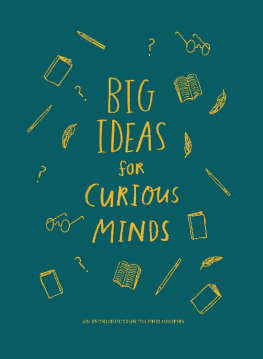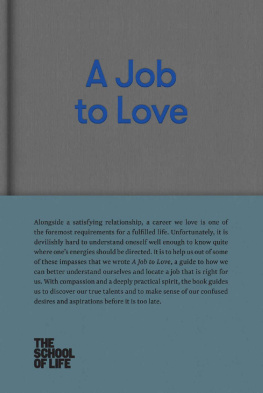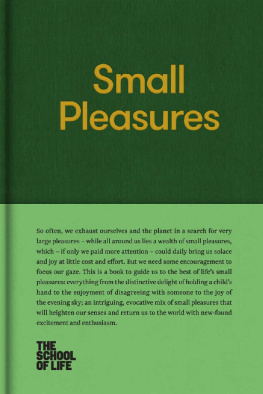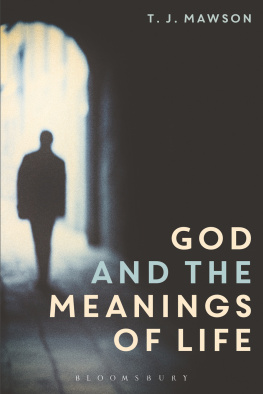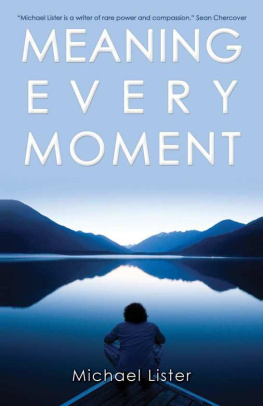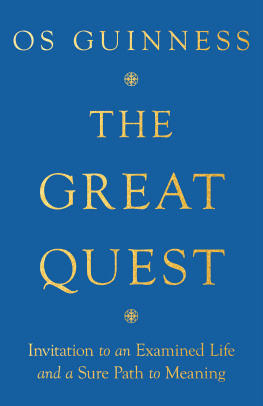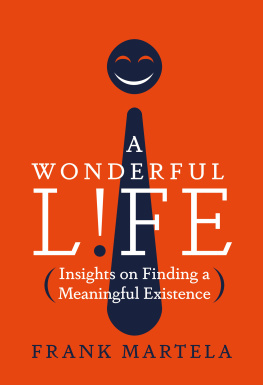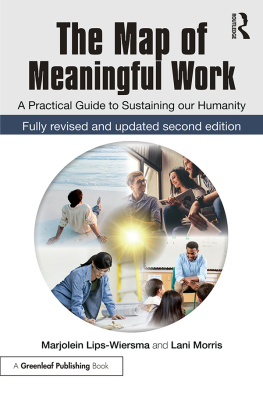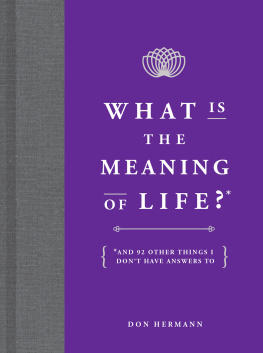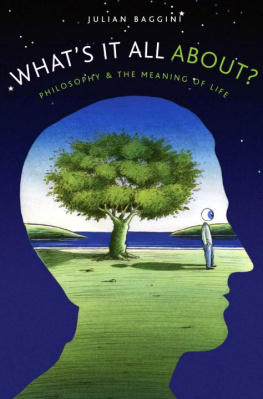Contents
Guide
A More Loving World
Contents
I.
A Loveless World
We begin with a vast and urgent claim: that we have forgotten how to love; that we are living and suffering in a loveless world. We have lost ourselves to intolerance, partisanship, cruelty and paranoia. If civilisation ends, it wont be because we have wrecked the climate or let off nuclear warheads; it will be due primarily to a failure of love. Worse, we have little clue what precisely is ailing us; we lack any sharp sense of the sickness choking us. Almost every agony commonly shelved as an issue of economics or politics is at base the result of a shortfall of love. The furies and horrors that unfold on the public stage are symptoms of our collective distempers of the heart.
We should admit that, without any ill intent, we harbour a narrow and impoverished sense of what love really is. We dwell in a loveless world because we have depleted one of the central words in our emotional lexicon.
Love is not, as we have too often come to believe, the special excitement we feel when in a cosy restaurant in the presence of someone unusually beautiful, pure, clever and accomplished. It is not the thrill of reaching shyly across the table to hold the hand for the first time of a miraculous being in whose eyes we sense a distinct tenderness and capacity to thrill. It is not an exclusive admiration for a favoured person of exceptional virtue. This may be moving and in certain moods important too, but it is not what has the power to redeem civilisation.
The love that counts does not depend on desire or adoration; nor does it focus on an approbation of a single person. Love is first and foremost what we should feel around all the many people it is so tempting to curse and to hate; those whom we instinctively believe are mistaken, ugly, irritating, venal, wrong-headed or ridiculous; those who may have made some truly serious mistakes and offended our moral codes; those who are dismissed by right-thinking opinion and condemned by the mob. To learn to love such people is the real accomplishment and the summit of our humanity.
It is love when we can look at someone who appears misguided, lazy, entitled, angry or proud and, instead of labelling them despicable, can wonder with imagination and sympathy how they might have come to be this way; when we can perceive the lost, vulnerable or hurt child that must lie somewhere within the perplexing or dispiriting adult.
It is love when we can accept that most of the irksome things that others do stem not from evil or an intention to hurt or wound, but from some form of buried, unexplained and unmasterable anxiety or distress; when we can look upon the human race as benighted and confused, very seldom as wicked.
It is a small but telling instance of love when a toddler throws their supper on the floor and screams that their parent is a poo, and instead of striking back, the grown-up picks them up, calms their fury and forgives them as they have already done a thousand times before (over the crayon on the wall and the broken radio, the rudeness to Granny and the tantrum at nursery) and discovers the energy to wonder what might have provoked their child to be so difficult: perhaps they are tired or teething, feeling at a low ebb or beset by jealousy towards a sibling. This attitude is admirable enough when it unfolds in the home, but it is yet greater and more important when it is directed towards the world at large, towards strangers who dont have especially cute cheeks or sparkling eyes and who might be staring back from a picture in the newspaper on their way to prison, or on a podium having just won an election representing a political party we abhor.
It is love when we grow our capacities for kindness rather than relying on our naturally occurring amiable impulses. Love means making the effort to extend our compassion beyond the bounds of attraction so that we may look generously on those that some might have deemed beyond the pale or undeserving: a category that includes not just the low-paid or immigrants but less familiar targets too, like a disgraced CEO, a badly behaved pop star, a shamed pundit or a right-wing magnate. If we understood love properly, when we said we loved a person, we wouldnt necessarily mean that we admired them or felt a kinship with them, but that we had taken steps to grasp the secret story of how they had come to be the way they are; that we had a handle on all the many difficulties that underpinned their troubling and objectionable sides.
It is love when we accept that the forbearance we ourselves crave, because of how many errors we have made and how foolish we have been, is in fact owed to everyone; when we can apply to others (especially those who are quite unlike us) an idea that feels so plausible in relation to our own flaws: that we can be good people despite having done silly things; that we dont merit condemnation in spite of our unfortunate aspects; that we should not be conflated with our worst moments; that we are still somewhere the little children we once were, crying out for reassurance, comfort, a kindly eye and a second (or a hundredth) chance.
*
All too often, we moralise, castigate, denounce, and punish. We think of ourselves as good people even as we pour contempt on our enemies, indulge our prejudices and blow on the embers of partisanship. We think we are believers in love because we like to go on dinner dates and celebrate wedding anniversaries. But in truth we risk becoming the most dangerous sorts of people: those disinclined to question the ways in which they hate; those a little too convinced of their own virtue; those who suspect it is invariably someone elses fault.
How might have we allowed ourselves to forget the highest promises of love? Four reasons suggest themselves:
One:
The Problem of Romanticism
The difficulties begin with the way the word love has been co-opted by the most powerful ideology to have emerged in the last 250 years. Beginning in Western Europe in the 18th century and then gradually spreading to all corners of the globe, the movement of ideas known as Romanticism has made us imagine that when we talk of love, we must invariably be speaking of the love of two starstruck individuals revelling in a sense of each others specialness; that love must always be about the longing we feel in the library or the supermarket, at the public swimming pool or on the boulevard when we glance at a graceful person whom our instincts tell us must be the answer to our loneliness and our desire. Romanticism has insisted not unfairly that love is the most powerful experience we are capable of, but it has limited its definition to an erotically infused, admiration-based concern of one person for another; it has equated love with a crush.
In working its effect on our minds, Romanticism has benefited from the assistance of the most talented poets, songwriters, painters, novelists and filmmakers. There are some people who would never have fallen in love if they had not heard there was such a thing, quipped the 17th-century French essayist, Franois de La Rochefoucauld and Romanticism has made it impossible not to hear about, and wait upon, this things arrival with the keenest anticipation. It has ensured that when they ride a train, dignified people can in all seriousness hope that they might lay eyes on a wondrous creature somewhere in the countryside between two cities who could, at a stroke, turn into the meaning of their life.
Humans have always felt the swoon of erotic desire, but only thanks to Romanticisms bold gambit have entire populations begun to think that such passions might constitute the summit of existence.

